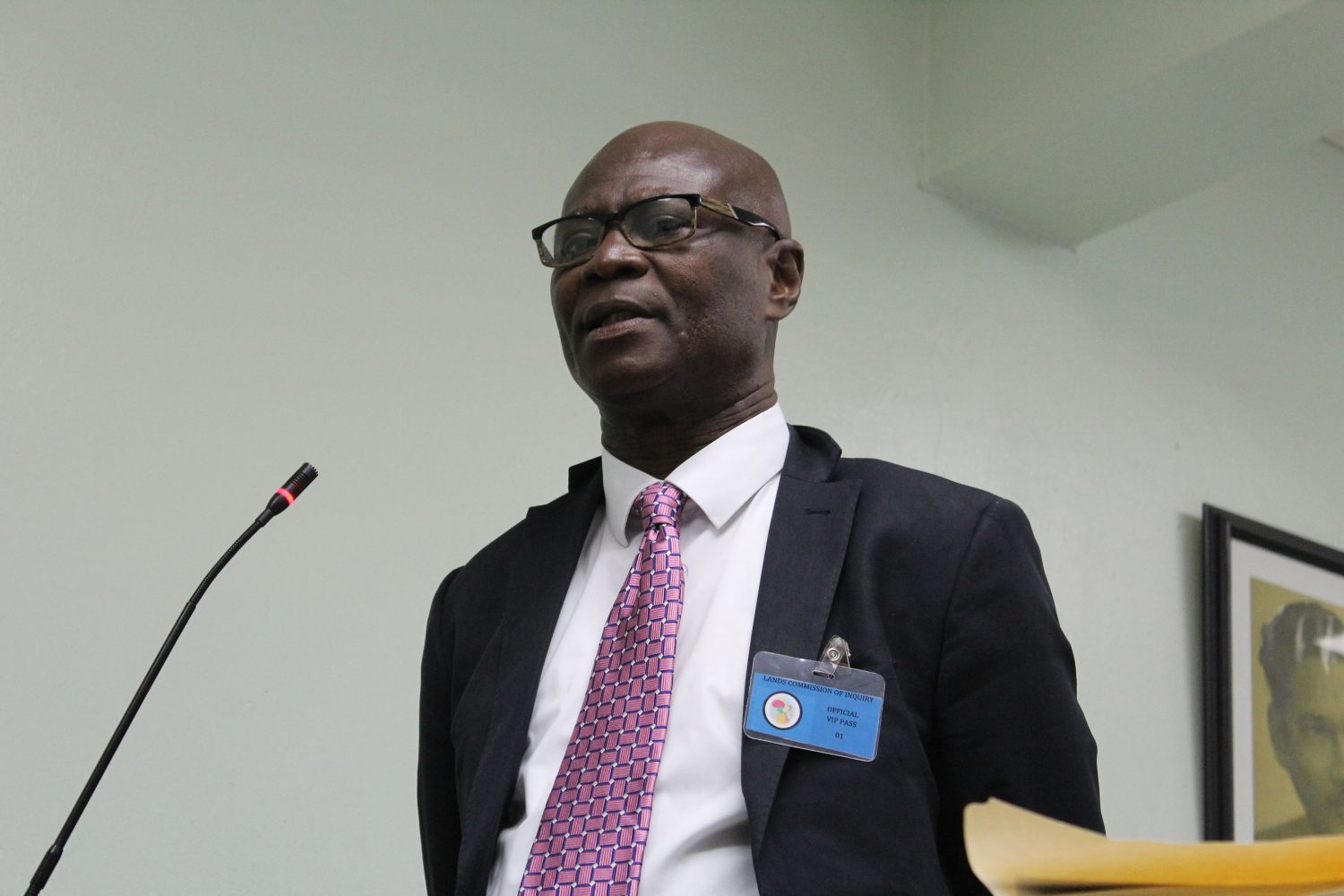Minister of Public Security Khemraj Ramjattan on Friday said that the audit of the Special Organised Crime Unit (SOCU) is moving apace and for the time being he has no issue with the police spearheading the exercise or SOCU’s head, Assistant Commissioner Sydney James, remaining on the job while the audit is being done.
“At this stage, yes. There are some allegations being made that monies were not spent properly and, of course, you just don’t do anything drastic. In the meantime, you listen to what the auditors of the police force could say… and then you proceed apace with that,” he said when asked if James should remain while the audit is in progress.
It was claims of grave mismanagement by sacked British advisor Dr Sam Sittlington and some SOCU staff that sparked the audit, which will cover as far back as 2014.
At the top of the list of concerns is the spending of operational funds, which ought to cater for basic things, such as the purchase of toiletries and credit for investigators and other staff, as well as the current arrangement for the storage of seized cash.
Sittlington had told this newspaper that tensions arose between him and James, a former army intelligence officer, when he began to question the spending of funds set aside for the operation of the unit and requested “certain information” late last year.
James was appointed by then president Donald Ramotar in September 2014.
Sittlington said that from his observations, items such as printers, ink, paper and toiletries, which are essential to the smooth functioning of the office and the comfort of those who work there, were not available. Additionally, he said, investigators were not being given credit for their phones and there was no internet available.
He said he managed to procure a printer for the office but added that for three months, there was no ink before he eventually managed to get the required funds from the British High Commission to purchase it.
SOCU officials, who spoke on condition of anonymity, told this newspaper that in violation of anti-money laundering laws, seized cash is being kept at the unit and in some cases at the Guyana Police Force’s Finance Department. It was explained that the money ought to be in an interest bearing account. The staff said concerns over the state of affairs were raised on numerous occasions but nothing was done.
Sittlington himself had said late last year he raised the issue with a senior police officer who promised to take action but nothing was done.
Following the publication of Sittlington’s concerns by this newspaper, the Guyana Police Force’s audit department met with SOCU’s head and based on a request, certain documents including receipts for items bought for the office, were to be submitted as part of an audit. Those were submitted several days later, this newspaper was told.
Ramjattan on Friday said that the audit was still ongoing and James was questioned by the auditors.
“They (auditors) are in the process of understanding better the system that was in place in relation to spending and, before I say more, please let that ongoing investigation continue,” he said.
Asked if he is comfortable with the police conducting the audit, he said, “Oh yes, at this stage, yes. I am very comfortable. That is what normally happens in the various departments if there [is] information about certain untoward developments; you generally put the policemen first. Of course then the Auditor General can come in and he can come in at any time,” he said.
Meanwhile, Ramjattan said that he is still working to have Sittlington resume his work in Guyana.
The British High Commission here on February 1st terminated the contract that Sittlington had with SOCU, one day after this newspaper reported that he had registered a local branch of his company even while advising SOCU on training and a range of other matters.
Sittlington has been adamant that there was no conflict of interest and has said that he intends to take legal action against the UK government with regards to the abrupt termination of his contract.
Asked if he has engaged the British on the issue, the minister explained that the British government had indicated that under the terms of the contract, “they can provide an alternative, so I have sought advice on that.”
Keeping in mind that this might not be possible, he said, “I will be trying but having terminated Sam, it necessarily means either we are gonna get the alternate person or not. I am going to endeavour to make that happen.”
Ramjattan, while expressing an interest in having Sittlington hired by the Guyana Government to continue the work he began, had said that he would engage UK High Commissioner Greg Quinn on the matter. The minister said too that he was very impressed with Sittlington’s work.






